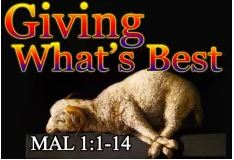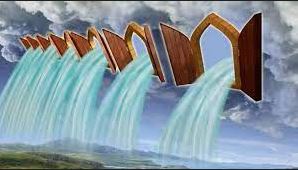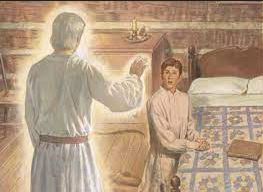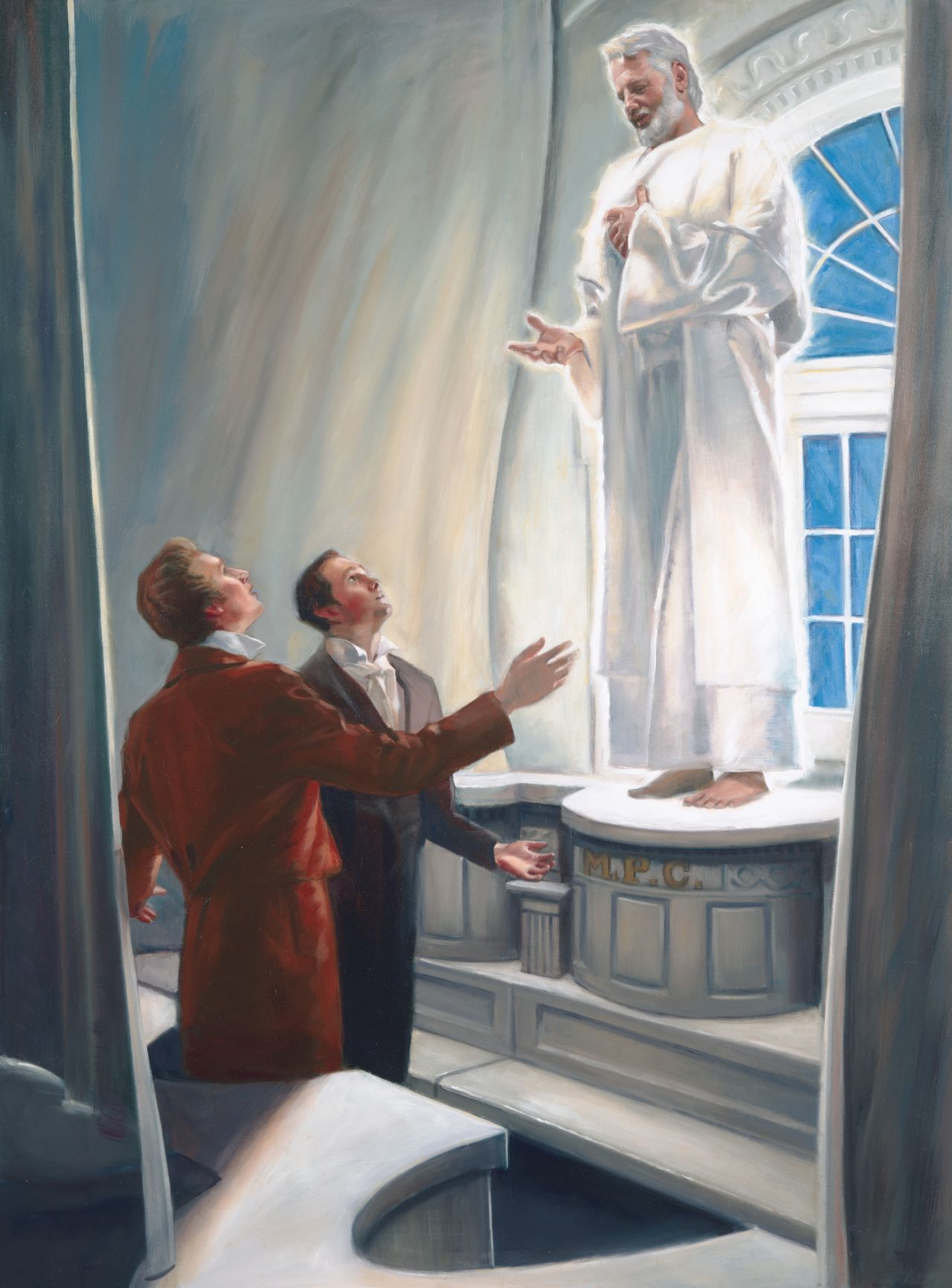To accompany your Come Follow Me study December 12-18
In addition to reading the indicated chapters, you may wish to:
- Read the applicable portions of the Old Testament Institute Student Manual at https://www.churchofjesuschrist.org/study/manual/old-testament-student-manual-kings-malachi/chapter-34?lang=eng
- Watch the video Malachi at Come Follow Me (Dec 12-18) – Malachi | The Grand Conclusion – YouTube
- Watch the video Overview: Malachi at https://www.youtube.com/watch?v=HPGShWZ4Jvk&t=1s
If you would like a Kahoot game related to this material which you could use for personal study or use with your family or your class, click here: https://create.kahoot.it/share/book-of-malachi/26971573-852f-40e5-afaf-4f1edc22304a (To use it with a group, after clicking on this link, you will need to log into Kahoot, creating a free account if you have not done so previously, then click on the blue “Start” button.)
Points to Ponder in Malachi
1. In Malachi 1:2 we find that the Jews of Malachi’s time were skeptical about the Lord’s love for them. What evidence could you point out to them of the Lord’s love for them?

2. Why does Malachi quote the Lord as saying, “I loved Jacob, and I hated Esau”? (Malachi 1:2-3). Doesn’t the Lord love all His children?
3. What in our day would be equivalent to the priests of Malachi’s day offering polluted bread and sick and lame animals as sacrifices?

4. Why is God so offended when we mistreat others (2:10)?
5. Malachi tells us in 2:16 that God “hateth putting away,” or divorce. What could you say to a divorced friend to help him or her feel better about this passage?

6. We find in Matthew 11:10 that Jesus applied Malachi 3:1 to the mission of John the Baptist. What additional application of the Malachi passage do Latter-day Saints make, and why?
7. What special application of Malachi 3:3 did Joseph Smith make to Latter-day Saints today as to how they are to “offer unto the Lord an offering in righteousness”?
8. What special use could missionaries make of Malachi 3:6?
9. In what ways, other than failure to pay tithing, is it possible to “rob God”?

10. In what two ways does Malachi suggest the Lord could bless faithful tithe payers economically? Which of the two do you think the Lord most often uses, and why?
11. What else could fulfill the promise to “open the windows of heaven” other than or in addition to providing increased income?

12. Malachi 3:16 refers to a “book of remembrance.” In years past, that term was often used by Latter-day Saints to describe a large binder in which they kept family history records. What do you think Malachi meant by the term?

13. Why does the Lord mention the “proud” separately from “all that do wickedly” in 4:1? What is so serious about pride?

14. What would it mean to be left with “neither root nor branch,” as Malachi 4:1 says will occur to the wicked at the Second Coming?

15. What significant addition did Moroni make to 4:5-6 when he quoted it to Joseph Smith, and why do you think he did so?

16. Why, except for Elijah’s visit, would the earth have been smitten with a curse?
17. At the end of Malachi, it says “THE END OF THE PROPHETS.” How can Latter-day Saints then teach that there are still prophets today?
Possible Answers to Points to Ponder in Malachi
1. In Malachi 1:2 we find that the Jews of Malachi’s time were skeptical about the Lord’s love for them. What evidence could you point out to them of the Lord’s love for them?
Possibilities could include:
- The Lord’s having freed their forefathers from captivity in Egypt through miraculous means, having provided daily manna for them in the wilderness, and having strengthened them on multiple occasions in battle against their enemies.
- The Lord’s having given them a choice and fertile land.
- The experience of mortality itself, with its opportunities to grow and progress, including trials and challenges.
- The joys of family life.
- The gifts of the Holy Spirit and direct access to the Lord through prayer.
- A beautiful earth with sights to please the eye, music for the ears, sweetness for the taste, etc.
- The promise of eternal life hereafter if they continued faithful.
- Etc., etc.
2. Why does Malachi quote the Lord as saying, “I loved Jacob, and I hated Esau”? (Malachi 1:2-3). Doesn’t the Lord love all His children?
Certainly, the Lord loves all His children, with a Fatherly love, but He loves the actions of some more than those of others. And He rewards the righteousness of the righteous and punishes the wicked, for their own good. This, of course, is what the Lord means here.
3. What in our day would be equivalent to the priests of Malachi’s day offering polluted bread and sick and lame animals as sacrifices?
Giving only what is convenient to the Lord, without sacrificing or inconveniencing ourselves. For example, giving only enough in fast offerings to have provided a breakfast of unsweetened oatmeal and beans and rice for lunch. Helping out with ward service projects only if we can’t think of anything else to do at the same time. Attending the temple grudgingly. Arriving late to church meetings. Reading the scriptures only occasionally. Etc., etc.
4. Why is God so offended when we mistreat others (2:10)?
We aren’t merely mistreating other human beings, we are mistreating God’s own children, and He takes it personally, just as most of us would be more incensed by someone hurting our family members than hurting us directly.
5. Malachi tells us in 2:16 that God “hateth putting away,” or divorce. What could you say to a divorced friend to help him or her feel better about this passage?
The Lord hates sin but not the sinner, of course, and the innocent victims of divorce need feel no shame or guilt because of the actions of others. And for the divorced, as well as for everyone else, the future can be as bright as they wish to make it. As the article “Divorce” in Gospel Topics states: “Those who have caused a divorce through their own poor choices can repent and be forgiven. Those whose marriages have failed because of what others have done can receive strength and comfort from the Lord, who promised: “Come unto me, all ye that labour and are heavy laden, and I will give you rest. … For my yoke is easy, and my burden light”.
6. We find in Matthew 11:10 that Jesus applied Malachi 3:1 to the mission of John the Baptist. What additional application of the Malachi passage do Latter-day Saints make, and why?
Even though John served as a messenger, preparing the way before the Lord, it seems clear from the context of Malachi 3:1-4 that the prophecy was not completely fulfilled in the preparation John made for the mortal mission of Jesus Christ. There was no “sudden” appearance at the temple. Jesus during His mortal ministry did not come like a “refiner’s fire” and did not at that time “purify the sons of Levi and purge them as gold and silver” with their subsequently offering unto the Lord an offering in righteousness. And the “offering of Judah and Jerusalem” has not yet become “pleasant unto the Lord, as in the days of old.” It seems clear that Malachi envisioned a latter-day messenger, who would prepare the way before the Lord’s Second Coming. Joseph Smith could be said to have filled that role. So could any or all of the heavenly messengers who visited him and conferred knowledge and priesthood power upon him. This is one of the best passages in all the Bible to show that revelation was never intended to cease with the days of the ancient apostles but would be a prominent feature of God’s work in our day.
7. What special application of Malachi 3:3 did Joseph Smith make to Latter-day Saints today as to how they are to “offer unto the Lord an offering in righteousness”?
In D&C 128:24, after quoting Malachi 3:3, Joseph Smith wrote: “Let us, therefore, as a church and a people, and as Latter-day Saints, offer unto the Lord an offering in righteousness; and let us present in his holy temple, when it is finished, a book containing the records of our dead, which shall be worthy of all acceptation.” Presumably the records kept in FamilySearch.org of our proxy work on behalf of our deceased relatives qualify as at least partial fulfillment.

8. What special use could missionaries make of Malachi 3:6?
If the Lord doesn’t change, it is clear that if He once worked through mortal prophets and apostles, He would logically continue to do so today.
9. In what ways, other than failure to pay tithing, is it possible to “rob God”?
To start with, Malachi doesn’t mention only tithing. He mentions tithes “and offerings.” Giving less than a generous fast offering would be a form of robbery, as would refusal to contribute to the Church’s humanitarian fund, for those in a position to participate. Withholding one’s time or talents would likewise qualify as “robbery” in this sense. Arriving late to meetings or otherwise being disruptive in them could “rob” others of the spiritual feelings they could otherwise enjoy. Refusing to accept callings would deprive other members of what we might have shared with them. Etc.
10. In what two ways does Malachi suggest the Lord could bless faithful tithe payers economically? Which of the two do you think the Lord most often uses, and why?
One possibility is that He might “open the windows of heaven,” and provide increased income. The other is that He might “rebuke the devourer” and have the faithful incur fewer expenses. They might have fewer medical bills. The car and appliances might not break own so often. Through better budgeting they might learn to do more with the remaining 90% than they had previously done with 100% of their income. My own opinion is that the Lord may “rebuke the devourer” more often than He opens the windows of heaven, in a temporal sense, as it is less sensational and may require more faith to recognize than would a more dramatic 10% raise, for example.
11. What else could fulfill the promise to “open the windows of heaven” other than or in addition to providing increased income?
If we expect to be better off economically from paying our tithes and offerings, we may be misunderstanding what the Lord is promising. While I have a firm conviction that the Lord can and often does help the faithful not to incur economic disaster, the greater blessing from the opening of the heavens would be a pouring down of revelation, peace, and other spiritual gifts upon their heads.
12. Malachi 3:16 refers to a “book of remembrance.” In years past, that term was often used by Latter-day Saints to describe a large binder in which they kept family history records. What do you think Malachi meant by the term?
It would appear that Malachi envisioned a record kept in heaven, perhaps the same as the “book of life” of Revelation 20:12 wherein the names of the faithful were inscribed.
13. Why does the Lord mention the “proud” separately from “all that do wickedly” in 4:1? What is so serious about pride?
Given the ancients’ penchant for parallelism, it may well be that Malachi simply recorded two ways of saying the same thing. Certainly, pride is the primary catalyst for every form of wickedness, as President Ezra Taft Benson so adequately expounded in the April 1989 general conference. (https://www.churchofjesuschrist.org/study/general-conference/1989/04/beware-of-pride?lang=eng)
14. What would it mean to be left with “neither root nor branch,” as Malachi 4:1 says will occur to the wicked at the Second Coming?
It would signify having neither ancestors nor posterity in the eternal sense.
15. What significant addition did Moroni make to 4:5-6 when he quoted it to Joseph Smith, and why do you think he did so?
It is not clear if Moroni is restoring missing text or adding to Moroni’s writings on his own volition (or through inspiration). But in any case, as we read in D&C 2 or in Joseph Smith’s history, Moroni added (1) “I will reveal unto you the Priesthood, by the hand of Elijah the prophet,” and added that “he shall plant in the hearts of the children the promises made to the fathers.” This clarifies that it would not be just a friendly social visit which Elijah would make in the last days, but that he would restore essential priesthood power—specifically the power to seal families together in the temple. And the mention of promises made to the fathers helps us understand that we have a significant role in the fulfillment of those promises. In fact, we may be among those who made such promises, assuring those who were appointed to be our ancestors at times when the gospel ordinances were not available that we would seek out their records and see that temple ordinances were performed on their behalf.
16. Why, except for Elijah’s visit, would the earth have been smitten with a curse?
The whole purpose of the earth’s creation was to provide the opportunity for God’s children to prepare to follow in His footsteps, being sealed together in eternal family units. Without Elijah’s restoration of the sealing power and his mission of turning the hearts of children to their fathers, such could not have been accomplished.
17. At the end of Malachi, it says “THE END OF THE PROPHETS.” How can Latter-day Saints then teach that there are still prophets today?
This phrase was not part of the Old Testament text but was an editorial insertion in the King James Version to indicate that this was the end of that portion of the Old Testament known as “The Prophets.” It in no way is a divine confirmation that revelation was to cease, as virtually everyone agrees who believes in the authenticity of the New Testament.
